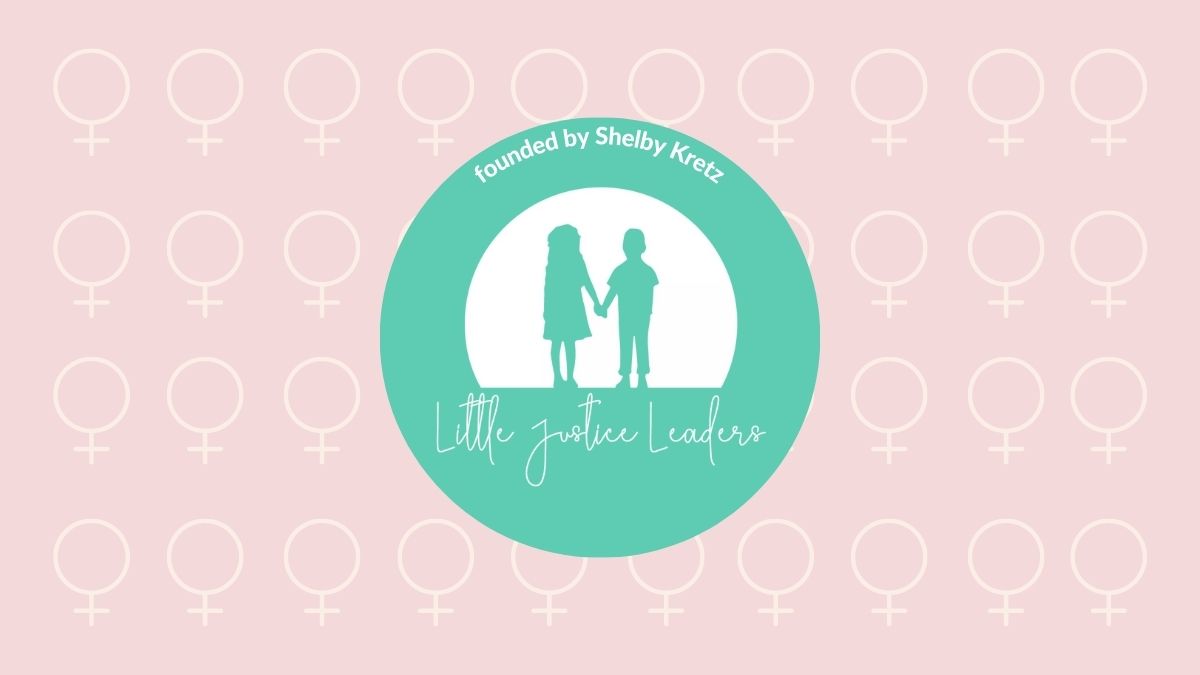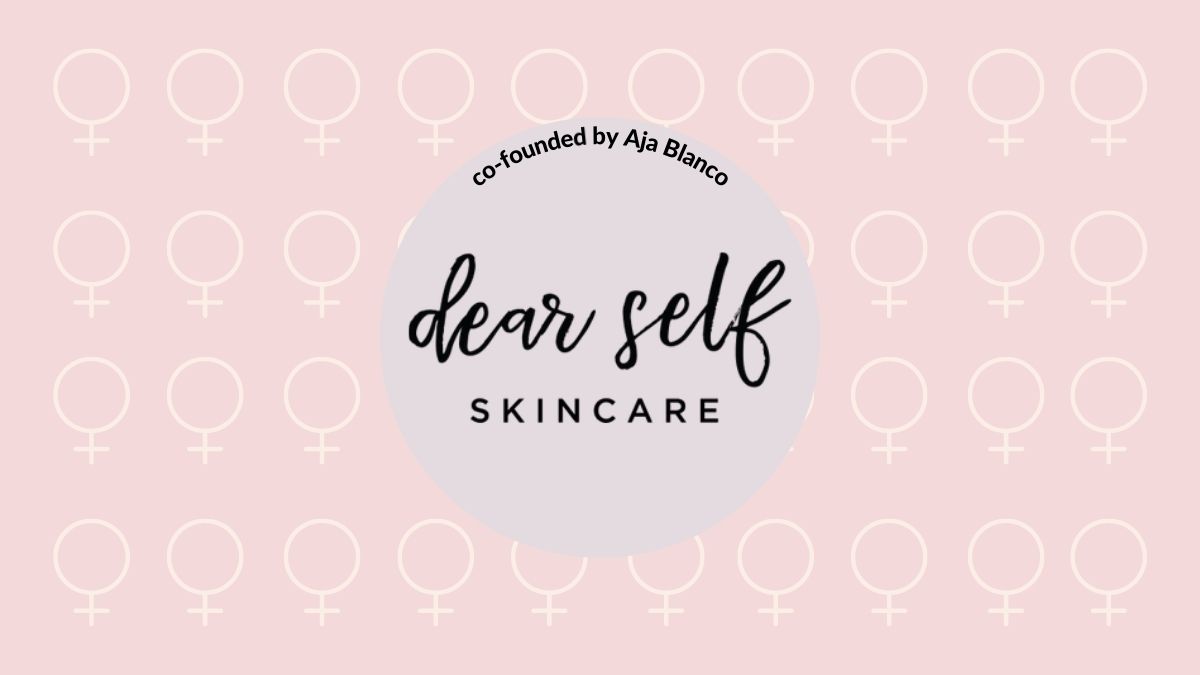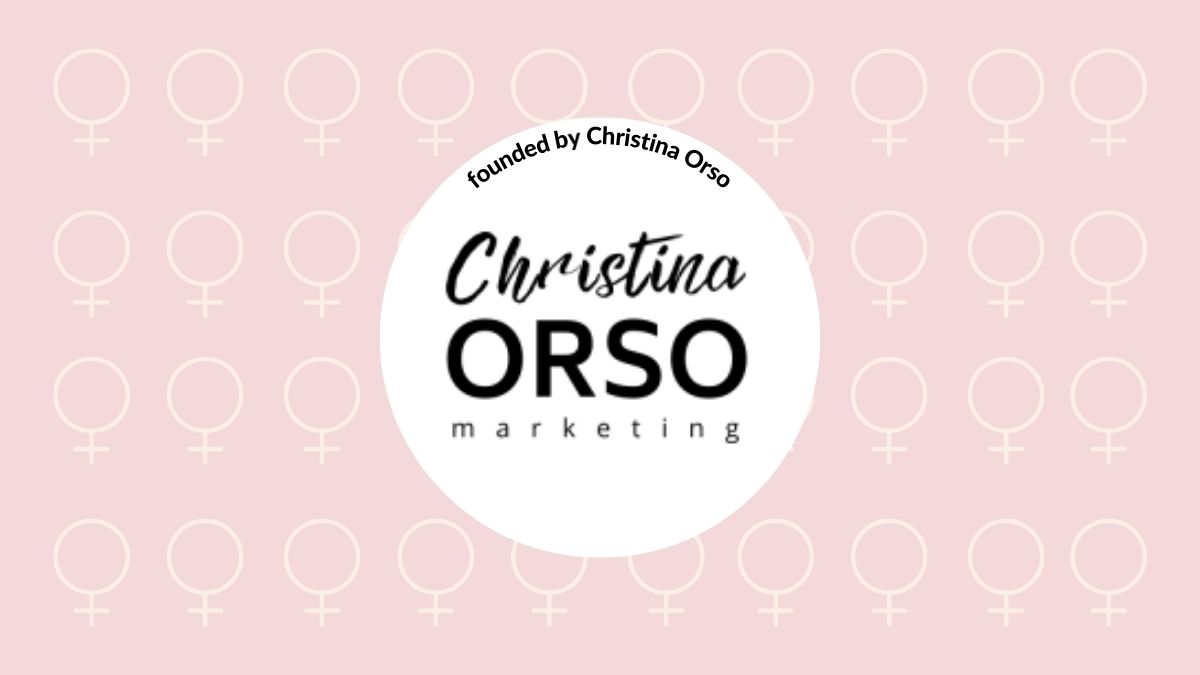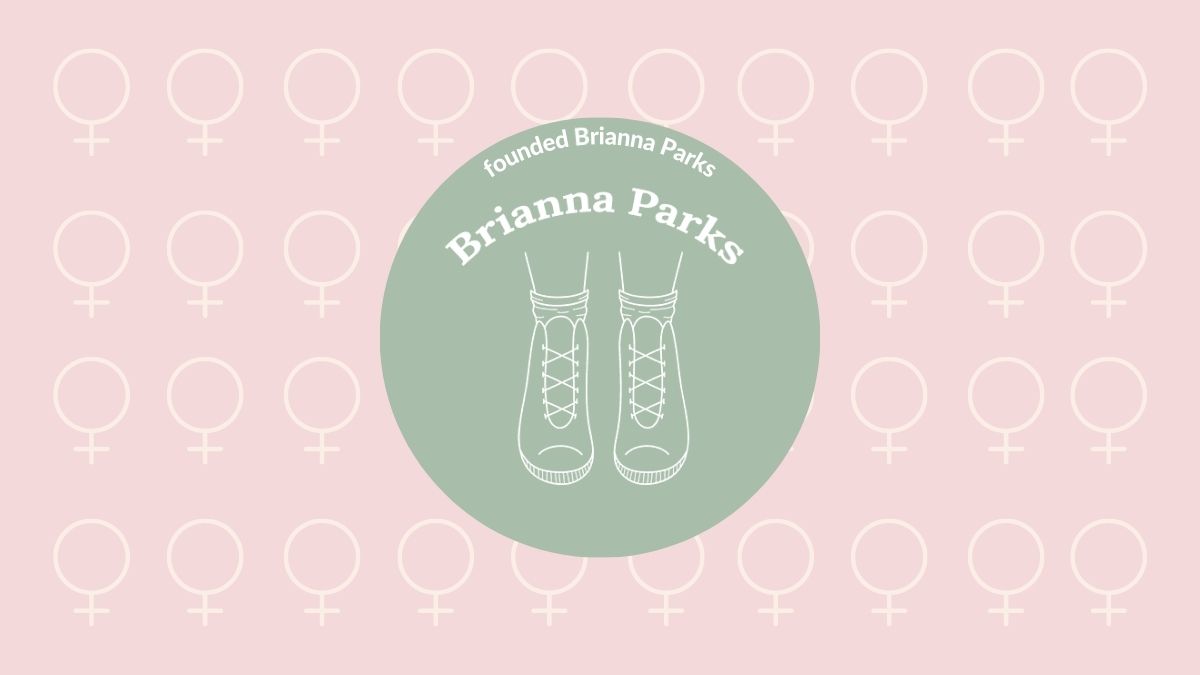If you still believe women are better housewives than entrepreneurs, we’d like you to meet Shelby Kretz, a PhD candidate at UCLA and Founder of Little Justice Leaders. Still unconvinced? Then you should subscribe to her monthly boxes with resources about sexism, racism, transphobia, Islamophobia, environmental justice, immigration, and so much more. Maybe that can help.
In the meantime, read her story and see if you can resist not to be inspired.
Feeling under-appreciated as an employee, a nonexistent work-life balance, financial struggles, getting out of bad relationships – these are the most common triggers that push women to become entrepreneurs. Tell us about your trigger?
For me, my trigger was more towards entrepreneurship than it was away from something else. More specifically, it was towards social impact. I was drawn to the work I wanted to do.
My nonprofit, 1girl, came out of a conversation with two friends of mine in college. One of my friends grew up in Kenya, and the other grew up in India. We were in a deep conversation about our experiences as women in different parts of the world.
We looked into what programs were available to girls in our area, and we were disappointed with what we found. While there was a lot of programming, none of it was focused on actual leadership skills (though many of them claimed to be teaching leadership). When digging into the curriculum of those leadership programs for girls, we found the programming was specific to girls. For example, they taught things like “girl drama,” body image (geared towards girls), and healthy relationships (for girls). and While that might seem reasonable at first glance, it didn’t make sense to us. How was a leadership program so gendered in what it taught? Weren’t we just reinforcing gender stereotypes for girls? Also, it just… wasn’t leadership.
We decided we could try something that might help girls develop actual leadership skills. We set out to create a leadership curriculum that could be used with a group of boys or girls. After all, leadership has no gender, right?
We never set out to create an organization, exactly. We stumbled upon something we cared about, and we took a small action to make a difference by testing the program at a local summer camp. Then more schools and programs reached out, so we stepped up. Eventually, we filed for nonprofit status, and before we knew it, we were running an organization.
Through 1girl, I found that I loved starting and growing an organization. The ability to make decisions, try new things, and make a real impact was exciting. After I grew 1girl with my co-founders and eventually passed it along to others to run, I had more confidence in my ability to start an organization. I knew I wanted to start a business this time because I didn’t enjoy the fundraising aspect of running a nonprofit. When the idea for Little Justice Leaders came to me, I had that confidence already and knew I could make it happen. Excitement for the mission was my trigger.
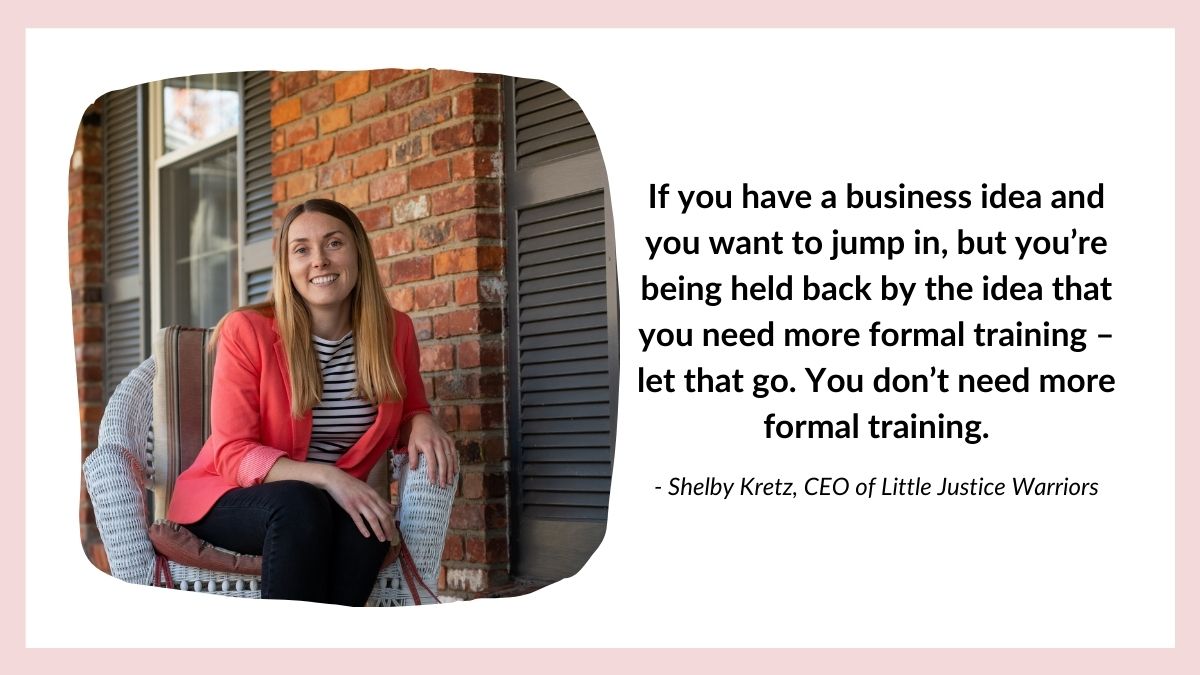
How did you come up with your business idea?
Throughout the 2016 election cycle, it’s no secret that many caregivers and educators were feeling uncomfortable with the messages their children and students were hearing in the media.
At that point, I’d been working in schools for years, so I spent a lot of time with educators and parents. I was hearing this concern from parents and teachers over and over again – how do I address this with little ones? They’re hearing these messages, and I don’t know what to say. I don’t know enough about it. I don’t know if they are old enough. I want to shield them from it.
As the years passed, the concerning topics on the news didn’t slow down. I continued to hear this fear from parents and educators, and many were coming to the same solution: I don’t know what to say, so I’m not saying anything at all.
This worried me. Kids were being exposed to these messages whether we wanted them to be or not. When parents and teachers don’t talk about topics that seem important, kids get the idea that the topic is taboo. And taboo subjects for kids are likely to create fear, confusion, and misinformation
I knew this needed to be fixed, for a few reasons. First, kids were getting the information either way, so educators and parents could help frame the story in an age-appropriate way. Second, kids have an innate desire for fairness and helping. This was a great opportunity to get them engaged in learning more about what is going on in the world. And third, some kids didn’t have the choice to opt out of these hard conversations. They were impacted by racism, transphobia, or xenophobia personally and had to face that fear every day. Why were other kids being shielded from it (when they could have been part of the solution instead)?
Most importantly: Kids grow up to be adults. Adults who become educators, music producers, business executives, engineers, nurses, preachers, artists, and police officers. Adults who have real influence and power in our society. Adults who either help to maintain unjust systems or work to dismantle them.
I knew I had the power to help educate and empower kids to become positive changemakers. I knew it had to be ongoing because there were so many topics to cover and the work is never done. It was so important to me to solve this problem because I strongly believe that we need to engage young people in social issues. Not only does it help them grow up to become involved, concerned citizens, but it also makes for more engaging learning experiences rooted in the real world.
Have you had support from someone, even if just encouragement? Who was that and how did it help you?
Absolutely. Mentors have been instrumental in my journey – through 1girl, Little Justice Leaders, and my Ph.D. program.
One of the most influential mentors of my life was Dr. Patty Cunningham. When we were starting 1girl, a lot of people doubted us. We had a number of people in positions of power tell us that we wouldn’t be successful. However, one person was a constant cheerleader from the first day we met her: Dr. Patty Cunningham.
She was the first person to join our Board of Directors, even though it was clear to her that we had a lot to learn. She guided us through the entire creation of 1girl. From day one, she constantly told us she believed in us and our mission.
A few years later, when I was thinking about graduate school, I was nervous to tell the 1girl Board of Directors. I thought they might think it would take away my focus from the organization. When I told Dr. Patty that I was considering a Ph.D., she said, “You have to do this. We need more female Ph.D.’s. You need to do this.”
She didn’t care that it might take away my focus from the organization because her focus as a mentor was to support me in everything I wanted to accomplish. She helped me through the graduate school application process and even wrote a letter of recommendation for me. She celebrated with me when I got into my dream school.
Sadly, Dr. Patty passed away when I was in my first year of graduate school, but her legacy lives on in me and the many others she mentored in her life. I always seek to uphold her values of justice and equity throughout everything I do, and I hope I can impact young women in the same way she did.
Female entrepreneurs are often underestimated and overlooked. Have you ever felt at a disadvantage?
I’m fortunate to work in the field of social justice, where people at least try (though not always successfully) to be aware of their biases. That being said, there is no doubt that I’m taken less seriously as a female entrepreneur. There is evidence to prove this is true, and I have felt it personally.
However, since I wasn’t interested in taking on venture capital, it has impacted me less than it might impact other female entrepreneurs. Female entrepreneurs are significantly less likely to receive funding compared to male entrepreneurs. I set out to build my company to be profitable very early on. My goal was to create an organization that I could grow slowly and build as a career, rather than building a massive company with outside funding. If my goals had been different, I likely would have experienced gender bias from potential investors.
I hope by building a successful company, I can be a small part of the movement to change gender biases against female founders.
Some say it’s hard work, others say it’s talent and resourcefulness that play a crucial role for success in entrepreneurship? Which traits have been instrumental for your success so far? And why?
Constant learning. I am always taking courses, reading books, and talking to people to get new perspectives, ideas, and knowledge. When starting a business, there is always more to learn, whether you’re an experienced entrepreneur or just starting out.
I find I’m constantly learning something new about business, marketing, social media, social justice, education, parenting, and so many other relevant topics.
Of course, I’ve had to work hard to build a business while in a Ph.D. program. I’ve had to be resourceful to find what I need and make connections. I’ve had endless help from supporters and mentors. But at the end of the day, my desire to always keep learning has helped me build a business that is responsive to the needs of my subscribers.
Learning always drives me forward, and it always has. I saw learning about how to run an organization as a challenge when I was building 1girl. Now, I’m learning how to build and grow a business. No matter how far along I get, there is always a new stage to learn about.
I know I would not be where I am today if I hadn’t been so adamant about always learning. Online courses, books, and mentors have guided the path, provided needed information, and sparked ideas that have made my company what it is today. I have no doubt that I’ll need to keep learning to grow more, and that if I ever let my learning journey end, the success of my company will come to an end, too.
What excites you the most about being an entrepreneur?
I know that I have the power to create new opportunities for myself. My ability to pay myself, grow my business, and expand my social impact falls on my shoulders – I’m not counting on anybody else to provide me with financial security. For me, that ultimate control is so satisfying, knowing that my success or failure is up to me.
That doesn’t mean I beat myself up when things don’t go well. I just have to learn from what I did before, change course, and move forward.
That being said, there are a number of factors that are outside of our control – like a global pandemic, for instance. However, as an entrepreneur, I have the ability to pivot, make crucial decisions, and come up with new ideas to respond to unexpected events. As an employee, you’re often waiting for the approval of someone else, whereas as an entrepreneur, you have to make decisions and rely on yourself (and your team).
When things go well, though, it’s an incredible feeling to know that you built something that makes an impact.
Share with us some of the worst business advice you’ve ever received?
“You need to get an MBA.”
Look, I have nothing against MBA’s, and I’m sure I could learn a lot from an MBA program. But the reality is, you don’t need a business degree to start a business. I don’t even have an undergraduate degree in business. You don’t need it!
If one of your goals in life is to get an MBA, then, by all means, do so. Getting a PhD was important to me, and it’s opened many doors for me (an MBA would have opened many doors as well). But I got the PhD because I wanted a PhD, not because I thought I needed it to be successful.
So, yes, if you are excited about getting an MBA, then go for it! But if you have a business idea and you want to jump in, but you’re being held back by the idea that you need more formal training – let that go. You don’t need more formal training. The best training for starting a business is actually starting a business. You will learn what you need to learn along the way. You will make mistakes, but you’ll learn from those, too.
Women, BIPOC, and LGBTQ+ individuals in particular are constantly told (and tell themselves) that they need more training, more school, more certifications before they can do the thing they really want to do. It’s not true. We hold ourselves back when we feel underqualified. Look around you – white cis straight men are starting up businesses with little or no formal training. And they probably aren’t being questioned about their qualifications nearly as much. If they can do it, you can too!
If anybody questions your qualifications, please ignore them. You can start a business without a business degree. Do not let other people’s fears and insecurities make you think otherwise.
You’ve got a high stake investment opportunity. Pitch your business in 150 words.
We all know that social justice issues like anti-racism and LGBTQ+ justice have become common topics in the lives of Americans. We see it with corporations who support Black Lives Matter, in commercials featuring LGBTQ+ stories, and all of our social media feeds.
So many people are seeking ways to make a difference in the fight for equality. Those who didn’t even recognize racism as an issue just a year ago are committing to change the way they live their lives to fight for racial justice.
And this includes millions of parents and teachers who want to educate their kids about it, too. Those caregivers and educators are seeking resources to talk to their kids about social justice.
Little Justice Leaders provides exactly that. We provide monthly subscription boxes with all the resources to talk to their elementary-school kids about racism, transphobia, Islamophobia, environmental justice, immigration, and so much more.
What’s the best piece of advice you’d give to inspire aspiring entrepreneurs?
When I launched the Little Justice Leaders website and social media platforms, I didn’t have any boxes made. In fact, I had no idea what would even go in a box. But I started telling people that boxes would be coming in August (it was May), and they would have resources to discuss social justice topics with kids. The orders started coming in months before I ever created a box. That showed me people actually wanted what I was selling, even though my website wasn’t perfect, and we didn’t have many Instagram followers.
Start telling people what you’re doing. It doesn’t matter if it isn’t ready yet or if you don’t have a website. It doesn’t matter if you have no idea how you’ll do it, or you don’t know the first thing about starting a business. Just start. Everything else you can figure out as you go.
What are your goals for the upcoming year?
Long term, my goal is to impact over one million children with social justice education. This would help us complete our mission: to help create a generation of young people who will dismantle oppression and fight for justice.
My goal for 2021 is to reach 1,000 monthly box subscribers, thus reaching an estimated 13,000 young people with social justice education. This would help move me along the path to reaching even more families and classrooms.
Another goal for 2021 is to bring on our first official employee. This will help us to develop systems and processes to set the business up for success as we grow.
Connect and partner up with Little Justice Leaders on Enterprise League
More must-read stories from Enterprise League:
- Inspiring quotes about supporting small businesses in challenging times.
- Best virtual networking events to get you back in the game.
- The surprising benefits of competition in business.
- Timeless business lessons no entrepreneurs should miss.
Related Articles
Aja Blanco – There is no business success without customer success
Aja Blanco discovered early on her entrepreneurial journey that business success depends entirely on customer success. Her brand revolves around self-love and eco-friendliness.
Christina Orso – Saying ‘No’ is the better route in entrepreneurship
Christina Orso is a successful Boston-based entrepreneur who has succeeded thanks to her motivation and curiosity. Her marketing is focused on restaurants and food brands.
Brianna Parks – Perfection in entrepreneurship is overrated
Brianna Parks’ entrepreneurial story is one to inspire young women to be brave and follow their dreams. She went from college to running her own business.
Aja Blanco – There is no business success without customer success
Aja Blanco discovered early on her entrepreneurial journey that business success depends entirely on customer success. Her brand revolves around self-love and eco-friendliness.
Christina Orso – Saying ‘No’ is the better route in entrepreneurship
Christina Orso is a successful Boston-based entrepreneur who has succeeded thanks to her motivation and curiosity. Her marketing is focused on restaurants and food brands.

